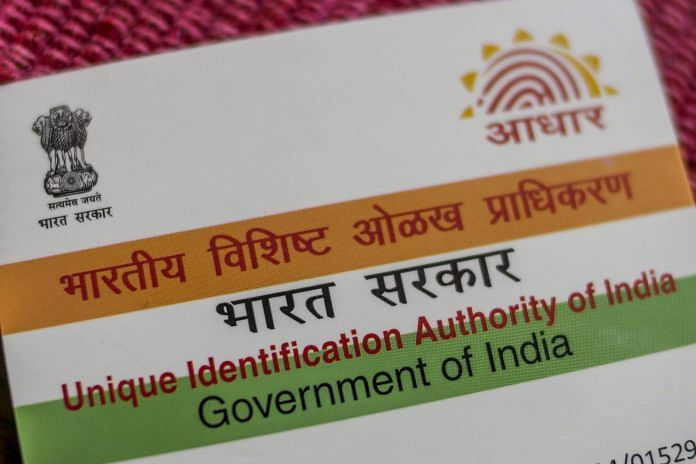The minority judgment on Aadhaar Act, penned by Justice D.Y. Chandrachud of the Supreme Court, flagged the lack of limits set for UIDAI.
New Delhi: The Supreme Court Wednesday upheld the validity of Aadhaar but restricted its use by private entities.
While the Supreme Court batted for the Aadhaar law with a 4:1 majority, Justice D.Y. Chandrachud penned a dissent note. Here are some excerpts from his 480-page opinion.
On judicial review of technology
In understanding the interface between governance, technology and freedom, this case will set the course for the future.
Our decision must address the dialogue between technology and power. The decision will analyse the extent to which technology has reconfigured the role of the State and has the potential to reset the lines which mark off no-fly zones: Areas where the sanctity of the individual is inviolable.
Also read: A verdict that shows it’s the Supreme Court of real India, not just its elites
Our path will define our commitment to limited government. Technology confronts the future of freedom itself.
The Aadhaar project raises two crucial questions: First, are there competing interests between human rights and ‘welfare furthering technology’ in democratic societies? Can technologies which are held out to bring opportunities for growth, also violate fundamental human freedoms? Second, if the answer to the first is in the affirmative, how should the balance be struck between these competing interests
On UIDAI and Aadhaar
While data is the new oil, it still eludes the life of the average citizen. If access to welfare entitlements is tagged to unique data sets, skewed access to informational resources should not lead to perpetuating the pre-existing inequalities of access to public resources.
An identification project that involves the collection of the biometric and demographic information of 1.3 billion people, creating the largest biometric identity project in the world, must be scrutinised carefully to assess its compliance with human rights.
The Act does not set any limits within which the sole authority of UIDAI (Unique Identification Authority of India) may operate. UIDAI has been conferred with discretionary powers… The architecture of Aadhaar keeps UIDAI at the centre of all processes.
Also read: The lazy person’s guide to the Supreme Court’s landmark Aadhaar judgment
On passing Aadhaar law as a money bill
Our Constitution does not provide absolute power to any institution. It sets the limits for each institution. Our constitutional scheme envisages a system of checks and balances. The power of the Speaker of the Lok Sabha, to decide whether a bill is a money bill, cannot be untrammelled.
The notion that an entrustment of power is absolute has a colonial origin. Law under a colonial regime was not just an instrument to maintain order but was a source of subordination.
On ‘uniqueness’ of Aadhaar
Identity is necessarily a plural concept. The Constitution also recognises a multitude of identities through the plethora of rights that it safeguards.
The technology deployed in the Aadhaar scheme reduces different constitutional identities into a single identity of a 12-digit number and infringes the right of an individual to identify herself/himself through a chosen means.
Also read: God, please save India from our ‘wine ‘n cheese’ Aadhaarophobics
Aadhaar is about identification and is an instrument which facilitates a proof of identity. It must not be allowed to obliterate constitutional identity.
Balancing of privacy rights with the right to life
One right cannot be taken away at the behest of the other. The State has failed to satisfy this court that the targeted delivery of subsidies which animate the right to life entails a necessary sacrifice of the right to individual autonomy, data protection and dignity when both these rights are protected by the Constitution.



